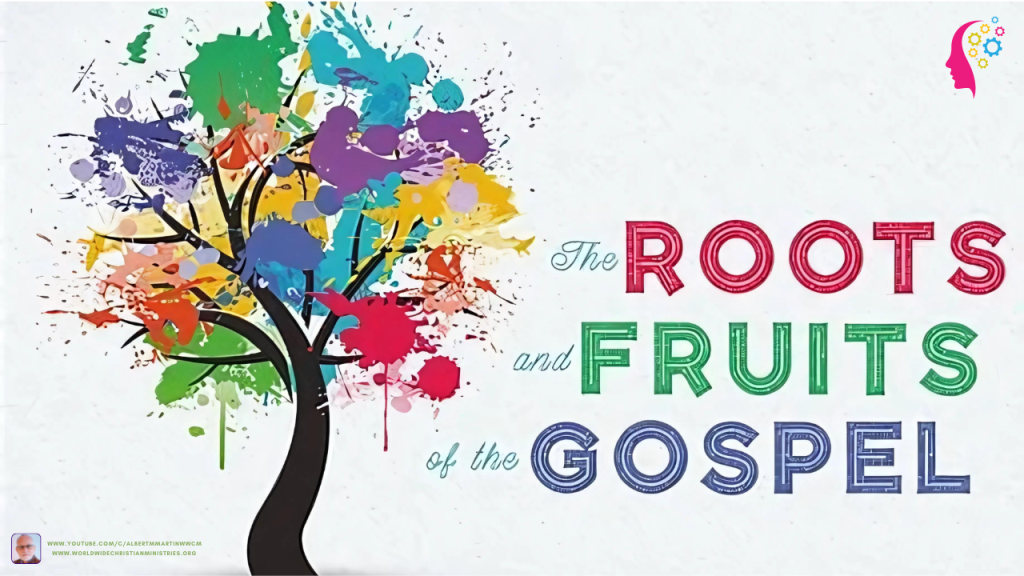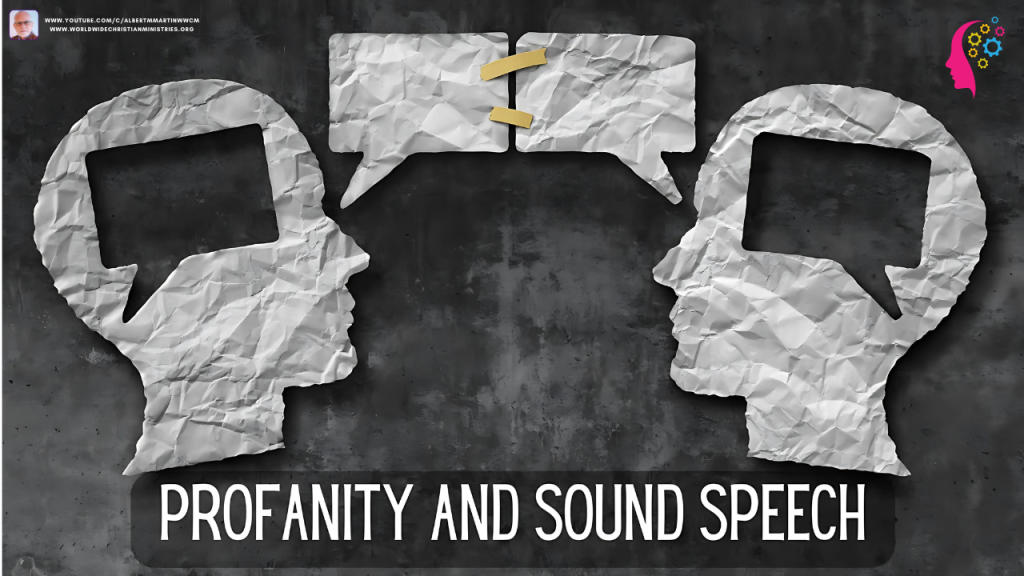The Christian’s Battle with Swearing — From Worldly Language to Kingdom Speech.
As Christians, and I hope I find agreement with this, we are called to reflect the values of God’s Kingdom in every aspect of our lives, including the words we speak. However, amongst the many challenges many believers face is one that I’m highlighting that of – transitioning from worldly, ungodly language to a form of speech that is in line with the principles of the “upside-down” Kingdom of God.
The battle against swearing is part of the greater transformation and the on-going work of sanctification that occurs as we renew our minds and submit our speech to Christ in line with Romans 12:1-2.
Let’s take a closer look together:

1. The Power of Words in God’s Kingdom.
The Bible emphasises the significance of words and their power to bless or curse. Just take a look at James 3:9-10 which states as an example, “Out of the same mouth come praise and cursing. My brothers and sisters, this should not be.” This is pointing to a subtle but real inconsistency that can occur where we are using our words in the context of both to worship God and speak inappropriately. Jesus also reminds us in Matthew 7:18 about Good and Bad Fruit and say, “You will know them by their fruit,” So, what does “fruit” mean? Jesus gave the illustration of grape vines and fig trees. When we see grape vines, we expect them to contain grapes in season. We also expect fig trees to produce figs. A produce farmer who notices one of his fruit trees not bearing any fruit will cut it down. It is useless. Likewise, we would not come to a field of thistles and expect to harvest fruit. Thistles and thorn bushes can never produce fruit because of their nature. It is impossible. They have no capacity to produce anything but thorns Matthew 12:33.
Now of course any fruit bearing takes time, energy, and pruning, it doesn’t occur overnight, but once a tree has been growing awhile then it is to be expected.
In our lives, every word and every action is fruit from our hearts. Sinners sin because that’s what they are and is in their hearts. Thieves steal because they are thieves, rapists attack because they are rapists, and adulterers cheat because those sins are the fruit being produced from an evil heart.
Bad hearts produce bad fruit, it’s as inevitable as Day follows Night. When Jesus said, “You will know them by their fruit” in context was referencing false teachers, He was giving us a guide for identifying them. False prophets, speakers of lies, will have actions that correspond to their errant message. Just as their message is anti-God, so will be their works. They will stray from the path of righteousness.
In the same manner though it is just as applicable to our vocabulary. The language we use reflects what is in our hearts, as Jesus said “As the heart is so the mouth speaks” – Matthew 12:34 (paraphrased) and God’s kingdom requires us to have speech that builds up, heals, reflects the love of Christ and brings transformation through the proclamation of the Gospel.
In the “upside-down” kingdom, where God’s ways often seem contrary to the world’s, we are called to reject the cultural norms that accept or excuse swearing and offensive language. Instead, we should use our words to glorify God, encourage others, and bring about positive change.
2. “Ge’ez” and “Flipping” as Substitutes.
It’s common for Christians who are trying to avoid outright swearing to substitute words like “Ge’ez” or “flipping” in place of harsher language. These toned-down terms might seem harmless, but they often indicate that deeper thought patterns and attitudes have not yet been fully transformed. While the intent may be to avoid explicit swearing, the use of such substitutes shows that the underlying issues of frustration, impatience, or anger remain.
People often seek alternatives to profanity for assorted reasons, particularly in contexts where strong language might be inappropriate. Here are some common substitutes:
- Gosh/Gee/Geez: These terms are used as softer alternatives to expressions like “God” or “Jesus.”
- Flipping/Freaking: These words serve as milder forms of emphasis and can replace harsher expletives such as an F-Bombs.
- Darn/Dang: Substitutes for “damn,” these words are often used in expressions of frustration or disappointment.
- Heck: A softer replacement for “hell.”
- Crap: Used in place of more vulgar terms, often to express annoyance utilised instead of an S-Bomb.
- Son of a gun: A less offensive alternative to a common profanity of Son of a B……
- Sugar/Shoot: Mild alternatives used in place of spicier language such as S-Bomb.
I recently encountered this firsthand when a meeting leader used “Geez” and “flipping” in their opening to a church service. Personally, I found this offensive, as it highlighted how easily worldly habits can sneak into our speech, even when we think we are avoiding sinful behaviour.
Even on Wednesday 25th September on “Thought for The Day” the Rev Jayne Manfredi (Ordinand, Chester Diocese – Church of England) in talking about an incident about a man called Ken utilised the word (rollocking instead of a B…….king.)
This experience reminded me of Jesus’ words in Matthew 12:34: “For the mouth speaks what the heart is full of.” Even softened language can reveal what still occupies our hearts and minds, showing that the deeper issue lies in the thought processes driving our words.
3. The Transformation of Thinking.

Romans 12:2 urges us, “Do not conform to the pattern of this world, but be transformed by the renewing of your mind.” Using words like “Geez” and “flipping” demonstrates a partial transition, where believers avoid explicit sin but still think in worldly terms. Real transformation involves allowing the Holy Spirit to renew not just our behaviour, but also the way we think, react and talk.
The upside-down kingdom doesn’t settle for external compliance; it calls for an inward renewal where even our responses in moments of anger or frustration align with Christ’s values. Instead of reacting with worldly expressions, we are invited to let our speech reflect patience, peace, and gentleness and godly speech. This shift can only happen when we fully surrender our thoughts and emotions to God, allowing Him to shape our language in every situation.

4. Living in the Upside-Down Kingdom Christ’s kingdom is countercultural.
Where the world encourages expressing anger or frustration through coarse speech, the kingdom of God values humility, self-control, and grace-filled language “My dear brothers and sisters, take note of this: Everyone should be quick to listen, slow to speak and slow to become angry, because human anger does not produce the righteousness that God desires. Therefore, get rid of all moral filth and the evil that is so prevalent and humbly accept the word planted in you, which can save you.” James 1:19. The upside-down kingdom calls us to submit our speech to Christ’s lordship. Rather than using language that simply avoids cursing, we are called to adopt a way of speaking that is consistent with our new identity as followers of Christ.
This change is not just about modifying the surface level of our words; it’s about letting the Holy Spirit transform our hearts so that our words naturally reflect the love, joy, and peace that come from a renewed mind. When our hearts are aligned with God’s kingdom, the need for substitutes like “Geez” and “flipping” fades, and we begin to speak in ways that bring life and encouragement to those around us.
5. Overcoming the Struggle.
A Resource for Believers For those who are struggling with swearing or with the temptation to use worldly substitutes, I’ve written a book titled The Christian’s Fight Against Swearing. This resource offers practical guidance for overcoming the habit of ungodly language and transitioning to speech that reflects the kingdom of God. Whether you are a new Christian or have been walking with Christ for years, this book provides tools to help you renew your mind and transform your language in a way that aligns with God’s will.

The Christian’s Fight Against Swearing is available in both paperback (https://amzn.eu/d/8bLkaXz) and eBook (https://amzn.eu/d/8blkaxz) formats, and it serves as a helpful guide for anyone seeking to live out the values of the upside-down kingdom through their speech. It’s not just about avoiding certain words; it’s about allowing God to shape your heart, your thoughts, and your entire way of communicating.
Conclusion.
The Call to Pure Language.
The battle against swearing is not merely about swapping bad words for less offensive ones. It’s about a complete transformation of the heart and mind so that our language reflects the values of God’s upside-down kingdom. As we grow in Christ, we are called to reject the patterns of the world and embrace a language that brings glory to God and encouragement to others.
As Christians, our calling extends beyond simply abstaining from foul language and profanity. We are called to something far higher, a language characterised by love, kindness, and humility. Making a list of “good” and “bad” words is not the goal of this. It involves allowing God to change our hearts to the point that the love, joy, and peace of Christ’s Kingdom naturally come through in our speech.
Through the power of the Holy Spirit, we can overcome the habit of worldly language and instead speak in ways that align with the purity, peace, and love that characterise Christ’s kingdom.
God Bless You.
Albert

